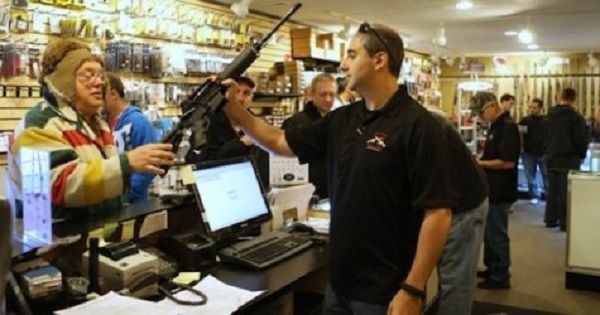
A new announcement by the Department of Homeland Security says gun manufacturers, retailers and range operators are “essential” to the workforce.
UPDATED: A new guideline released Saturday by the Department of Homeland Security titled “Guidance on the Essential Critical Infrastructure Workforce” has included workers in the firearms industry, from manufacturers down to shooting ranges.
The reference can be found under the section headlined “Law Enforcement, Public Safety, and Other First Responders.” Included in that section are “Workers supporting the operation of firearm or ammunition product manufacturers, retailers, importers, distributors, and shooting ranges.”
The announcement may give state and local officials pause. During the past week, lawsuits have been filed against New Jersey Gov. Phil Murphy, California Gov. Gavin Newsom and Los Angeles County Sheriff Alex Villanueva, and Wake County, N.C. Sheriff Gerald M. Baker, over their orders to close gun shops in their respective jurisdictions.
In Washington State, the situation infuriated gun shop operators and rights activists who saw earlier in the week that Gov. Jay Inslee’s “shut down” directive had included marijuana shops as “essential” but not gun shops. Inslee had not yet been sued.
In a prepared statement, Alan Gottlieb, founder and executive vice president of the Bellevue, Wash.-based Second Amendment Foundation, said, “Every freedom loving American owes President Donald Trump and his administration a very big thank you for protecting our Second Amendment rights. This is another Trump promise made and promise kept.”
In the memorandum, there’s a notation that the list “is advisory in nature.”
“It is not, nor should it be considered, a federal directive or standard,” the memorandum says. “Additionally, this advisory list is not intended to be the exclusive list of critical infrastructure sectors, workers, and functions that should continue during the COVID-19 response across all jurisdictions. Individual jurisdictions should add or subtract essential workforce categories based on their own requirements and discretion.”
SAF has been involved in the various lawsuits, along with other organizations including the National Rifle Association, Firearms Policy Coalition, Grass Roots North Carolina, California Gun Rights Foundation and New Jersey Second Amendment Society, along with several private citizens in each jurisdiction.
Complicating matters has been the fact that many of the participants have been affected by the “shelter-in-place” directives in their individual states.
“A lot of people have done incredible work…to make it happen,” Gottlieb said.
One thing that seems to underscore the “new importance” of the Second Amendment has been the rush on guns and ammunition witnessed around the nation.
“Even people who never before owned a firearm rushed to buy one as the pandemic has spread,” Gottlieb observed. “Instinctively, people headed to those places where they could buy guns and ammunition, which underscores just how essential those businesses really are.”
There have been some close calls. In Delaware, the governor backed down from a gun shop closure order after the New Jersey lawsuit was filed and it became known SAF and NRA were preparing a federal complaint.
“After we sued New Jersey, our threatened lawsuit against Delaware…played a key role in bringing about this change of heart,” SAF’s Gottlieb said. “We can think of no more essential endeavor outside of health care and emergency services during a time of crisis than a business that enables citizens to exercise their fundamental right protected by the Second Amendment.”
Two cities in Washington State—Bellingham and Edmonds—were preparing emergency orders dealing with a ban on carrying firearms during declared emergencies, but the state constitution and 35-year-old state preemption law appear to have discouraged that, along with intense pressure by gun rights activists. Even gubernatorial candidate Tim Eyman stepped into the controversy by confronting officials in Edmonds.